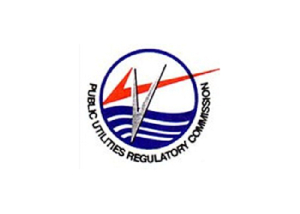Two leading consumer advocacy groups—CUTS International Accra and the Centre for Environmental Management and Sustainable Energy (CEMSE)—have strongly criticized the Public Utilities Regulatory Commission (PURC) for its decision to increase electricity tariffs by 2.45%, effective July 1, 2025.
In a joint statement, the groups described the hike as unjustified, citing a lack of transparency, outdated economic data, and failure to consult stakeholders. The increase was announced as part of PURC’s quarterly review process. Water tariffs, however, remain unchanged for the third quarter.
According to Appiah Kusi Adomako, West Africa Regional Director of CUTS International, and Benjamin Nsiah, Executive Director of CEMSE, the Commission’s decision violates Section 3(c) of Act 538 of 1997, which mandates fair and balanced pricing that benefits the government, utility providers, and consumers alike.
The CSOs argue that macroeconomic improvements—especially the over 30% appreciation of the Ghanaian cedi, from GH¢15.70 to GH¢10.31 per US dollar between Q1 and Q2—should have prompted a tariff reduction. They estimate that this appreciation created a GH¢1 billion windfall for the government and utility companies, which could have been used to lower consumer tariffs or settle outstanding debts.
Additionally, the groups criticized PURC’s reliance on an outdated inflation rate of 20.67%, despite the current rate standing at 18.4%. “Falling inflation reduces operational costs, and the benefit should be passed on to consumers,” the statement read.
They also questioned the economic justification for the tariff hike, noting that the Weighted Average Cost of Gas (WACOG) rose by just 1% (or $0.08)—a change they argue is too small to warrant any increase in electricity prices. For comparison, a 25% surge in gas costs in 2024 led to only a 3.5% increase in tariffs, making the current decision appear inconsistent and economically indefensible.
Further concerns were raised over the GH¢488 million in outstanding arrears cited by PURC. The CSOs demanded accountability for how the cedi appreciation windfall was utilized. They also condemned the Commission for introducing new cost components—such as fuel and reserve margins—without stakeholder consultation or public disclosure. Notably, the 27% fuel cost component was introduced without any supporting data, simulations, or procurement details being released.
Warning of systemic risks, the groups stated that repeated tariff increases could entrench inefficiencies in Ghana’s power sector while placing undue pressure on already burdened consumers.
“If care is not taken, PURC’s frequent upward tariff adjustments could result in an energy sector that is not efficient,” the statement warned.
CUTS and CEMSE are calling on President Mahama to immediately suspend the tariff increase and direct PURC to disclose the full methodology and assumptions behind its decision.



